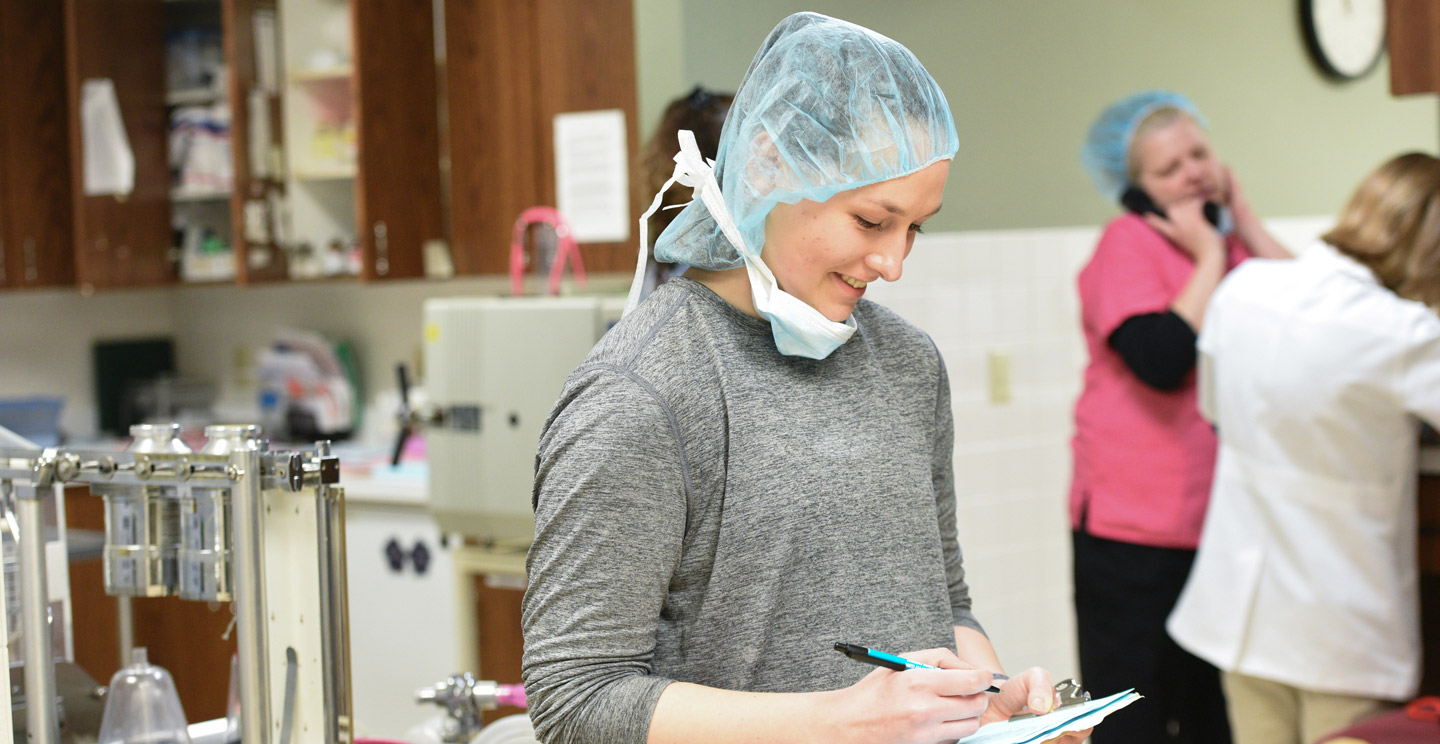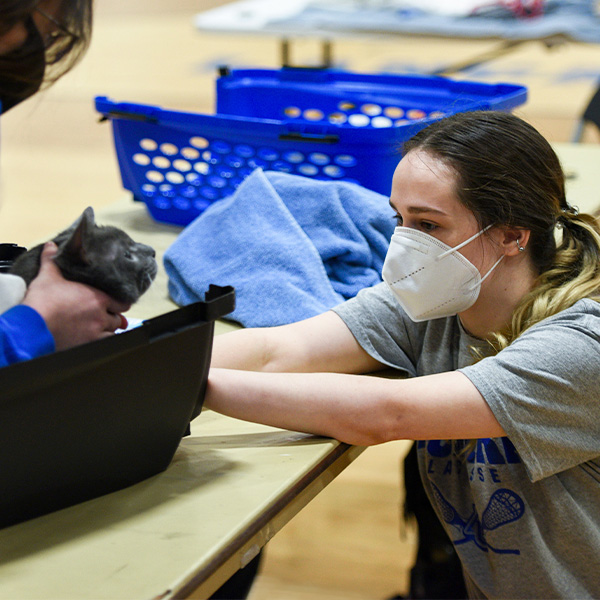Veterinary Medicine (Pre)

Why study Veterinary Medicine (Pre)?
If you love animals and excel at science and math, veterinary medicine could be the right career for you. Veterinarians provide care for dogs, cats, and other companion animals in private practices. However, they also work in various fields, including public health, food safety, research, public policy, agriculture, and education.
Aurora University's Pre-Veterinary Medicine program offers a curated collection of prerequisite courses necessary to be accepted into veterinary school.
As a Pre-Veterinary Medicine student, you will major in Human-Animal Studies while enrolling in the Pre-Veterinary Medicine program. You will have unique opportunities to conduct laboratory research under the guidance of expert faculty. Participating in research experiences not only enhances your veterinary school application, but also deepens your understanding of what you learn in the classroom and develops essential professional skills.
Gaining admission to veterinary school is highly competitive and requires significant time and dedication. That's why AU offers one-on-one guidance from expert faculty throughout the veterinary school application process, as well as valuable, hands-on internship opportunities so you can experience what it is like to work with animals and to practice veterinary medicine.
After you earn your undergraduate degree, you will attend four years of veterinary school to earn a Doctor of Veterinary Medicine. You must then pass the North American Veterinary Licensing Examination (NAVLE) and meet any additional state requirements.
Qualified Pre-Veterinary Medicine students can benefit from AU’s agreements with Midwestern University and the University of Missouri’s College of Veterinary Medicine. Please visit our academic affiliations page to learn more.
- Anatomy and Physiology I
- Anatomy and Physiology II
- Biochemistry
- General Biology I with lab
- General Biology II with lab
- General Chemistry I with lab
- General Chemistry II with lab
- General Physics I with lab
- General Physics II with lab
- Genetics
- Microbiology with lab
- Organic Chemistry I with lab
- Precalculus
- Statistics
- AU Science Organization
- Future of Animal Medicine Club (AUFAM)
- Mu Sigma Pi: Mind. Body. Spirit.
- Unleashed Human-Animal Studies Club
annual median salary for veterinarians
2024-2034 projected job growth rate
AU’s rigorous science courses, like Microbiology and Human Physiology, taught me how to study effectively. They made my transition to veterinary school much smoother than I expected.Hanna Seils '22, veterinary medicine student at University of Illinois Urbana-Champaign

Experiential learning
You will have the opportunity to complete an internship, clinical, or field experience at a veterinary hospital. AU’s pre-veterinary advisor will assist you in finding internships in the veterinary field that match your interests, allowing you to gain firsthand experience in your chosen profession.
Internship Sites
- Anderson Animal Shelter
- Brookfield Zoo
- Chicago Equine Medical Center
- Cosley Park Zoo
- Countryside Veterinary Clinic
- Phillips Park Zoo
- VIP Petcare
- Wheaton Animal Hospital
- Willowbrook Wildlife Center
Where AU graduates attend veterinary school
- Midwestern University (Arizona)
- Purdue University
- Ross University School of Veterinary Medicine
- University of Illinois
- University of Missouri
- University of Wisconsin